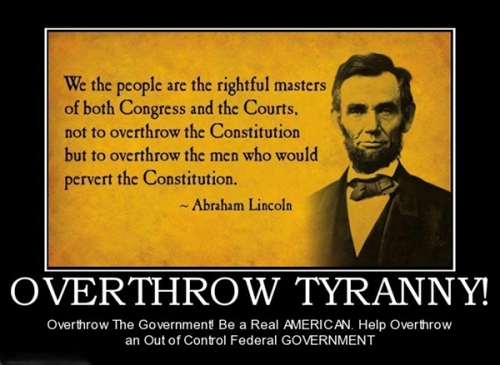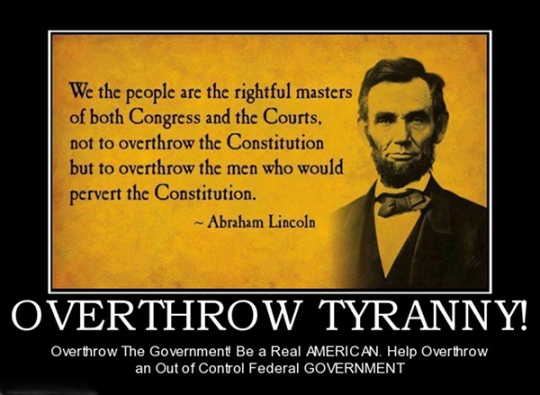Father’s Day – Money Is The Measure, Not Freedom
by J. Greene
 Men have been honestly caring for their children from the beginnings of civilization. Some have not, including mothers. It has always been that way. We don’t live in a perfect world. Enter the modern state in all its’ wisdom, where all people are expected to tolerate a state-controlled legalized extortion racket because children are the future – but mostly for benefit of the state. The state even routinely combs through bank records in the eternal vanity of finding a few stray bucks from those that dare to evade child support collection. It’s an old game whose influence has steadily increased since the free love movement, when rancorous feminists began burning their bras and politicians saw the political cache they could achieve through social manipulation. As a result, the real role of fatherhood and the definition of a family has been continually cheapened.
Men have been honestly caring for their children from the beginnings of civilization. Some have not, including mothers. It has always been that way. We don’t live in a perfect world. Enter the modern state in all its’ wisdom, where all people are expected to tolerate a state-controlled legalized extortion racket because children are the future – but mostly for benefit of the state. The state even routinely combs through bank records in the eternal vanity of finding a few stray bucks from those that dare to evade child support collection. It’s an old game whose influence has steadily increased since the free love movement, when rancorous feminists began burning their bras and politicians saw the political cache they could achieve through social manipulation. As a result, the real role of fatherhood and the definition of a family has been continually cheapened.
 In the corporation known as the United States, the system routinely oppresses fathers, while offering poverty support to single and divorced mothers (and some fathers). They have also been oppressing the taxpayer as well, hoping and pretending to bring in more than they spend, even as they send state corporations double their child support collections. Only the light-headed politicians of the United States would think to do such a thing. Of course, these are the same men and women that fund operations as the “policeman of world” while playing “Uncle Sugar” to the world. They even continue to send China a regular stipend because of its’ poverty, while running a burgeoning deficit that the children of the future are expected to pay. This is obviously unsustainable, despite the fact that they indirectly operate the printing presses that prop up the reserve currency of the world. In fact, this is the only reason that the lawmakers that rule “Uncle Sugar” can continue to operate as they have. The nation as it stands is living on borrowed time.
In the corporation known as the United States, the system routinely oppresses fathers, while offering poverty support to single and divorced mothers (and some fathers). They have also been oppressing the taxpayer as well, hoping and pretending to bring in more than they spend, even as they send state corporations double their child support collections. Only the light-headed politicians of the United States would think to do such a thing. Of course, these are the same men and women that fund operations as the “policeman of world” while playing “Uncle Sugar” to the world. They even continue to send China a regular stipend because of its’ poverty, while running a burgeoning deficit that the children of the future are expected to pay. This is obviously unsustainable, despite the fact that they indirectly operate the printing presses that prop up the reserve currency of the world. In fact, this is the only reason that the lawmakers that rule “Uncle Sugar” can continue to operate as they have. The nation as it stands is living on borrowed time.
Since money is the measure in the propaganda that is cast about, you’ll find that fatherhood is measured the same way. This is no surprise in a nation mesmerized by the illusion of wealth. Social scientists at Johns Hopkins have decided that low income fathers purchase a relationship with their children.
 “They want their kids to look down at their feet and say, ‘My dad cares about me because he bought me these shoes,’” says a co-author of the study in a press statement. “We need to respect what these guys are doing, linking love and provision in a way that’s meaningful to the child. The child support system weakens the child/father bond by separating the act of love from the act of providing.”
“They want their kids to look down at their feet and say, ‘My dad cares about me because he bought me these shoes,’” says a co-author of the study in a press statement. “We need to respect what these guys are doing, linking love and provision in a way that’s meaningful to the child. The child support system weakens the child/father bond by separating the act of love from the act of providing.”
Yet, the child support system plugs along mercilessly despite a nation of earners that has not truly recovered from the economic debacle that eclipsed in 2008. Untold millions have been crushed, merely grist for the mill of poor governance. Republicans claim that we must find a way to be fiscally responsible, while supporting the current child support system that imprisons the nation. This is a lie pressed to ignorant people. They simply support the status quo with the illusion of conservative values. Their buddies are merely more “progressive.” Meanwhile, the men that give their blind consent can choose to pretend they are purchasing the adoration of their children, as these social scientists say, or they can realize the truth.
 The family is only a family as long as the family unit is together. Once breached by rejection, separation and divorce, a family is not a family at all – especially outside of a committed relationship. That a single mother and her child is a real family is also debatable. The “wise men” of the nation have simply continued to revise the definition of the family to suit their needs. That is the deeper reality that the state would have you ignore to your continued peril. It benefits them for you to believe as you do.
The family is only a family as long as the family unit is together. Once breached by rejection, separation and divorce, a family is not a family at all – especially outside of a committed relationship. That a single mother and her child is a real family is also debatable. The “wise men” of the nation have simply continued to revise the definition of the family to suit their needs. That is the deeper reality that the state would have you ignore to your continued peril. It benefits them for you to believe as you do.
It has been posited that the “Founding Fathers” would turn over in their graves if they were able to know about the ongoing debt slavery and legalized human trafficking that is the United States. I think not. These men were fully aware of the hypocrisy that “America” was built on. The governance of the nation has profited from the slavery and oppression of others from the very beginning with little apology, or admission of error. The lawgivers have even reconfigured the corporation to enslave for personal advantage. Robber barons everywhere continue the public plunder under the pretense of propriety and a kind face when it suits them. Your consent is your ignorance. Even governance is just another corporation. They seduce “the people” with infrastructure and social trinkets. The propaganda machine has continued to eject that notion that the nation is a democracy, the “land of the free.” Who the “free” truly are is for you to decide.

 Walter Scott, a father to four children, was shot dead by a police officer later charged with first-degree murder while running away from him. One of the many questions some asked after the news of the shooting broke in the national press was why he might flee such an encounter. His family said it was because he owed so much in unpaid child support. “I believe he didn’t want to go to jail again. He just ran away,” Walter Scott Sr. told the press.
Walter Scott, a father to four children, was shot dead by a police officer later charged with first-degree murder while running away from him. One of the many questions some asked after the news of the shooting broke in the national press was why he might flee such an encounter. His family said it was because he owed so much in unpaid child support. “I believe he didn’t want to go to jail again. He just ran away,” Walter Scott Sr. told the press. But this strategy doesn’t necessarily help the parents who need child support, usually single mothers, and does little to help the fathers get jobs that pay enough to allow them to send money to their kids. A jailed father can’t earn any income, but his child support debts often keep accruing. Many states don’t allow people to reduce or suspend their child support obligations while they’re in jail, so they end up leaving with $15,000 to $30,000 in debt. They also face a more difficult time finding employment when they get out.
But this strategy doesn’t necessarily help the parents who need child support, usually single mothers, and does little to help the fathers get jobs that pay enough to allow them to send money to their kids. A jailed father can’t earn any income, but his child support debts often keep accruing. Many states don’t allow people to reduce or suspend their child support obligations while they’re in jail, so they end up leaving with $15,000 to $30,000 in debt. They also face a more difficult time finding employment when they get out. The best model is likely to be found in Europe. As of 2010, all European countries except the Netherlands guaranteed child support payments to custodial parents even if the noncustodial parent couldn’t pay or could only pay part. Sweden goes even further and has a guaranteed assistance program in which all custodial parents get a child support payment from the government no matter what, and the government then collects what it can from the noncustodial ones. Such a system seems to work — 95 percent of these parents get child support payments. This system “gets you a guaranteed minimum benefit whatever the nonresident father can pay,” explained Irwin Garfinkel, a professor of social work at Columbia University.
The best model is likely to be found in Europe. As of 2010, all European countries except the Netherlands guaranteed child support payments to custodial parents even if the noncustodial parent couldn’t pay or could only pay part. Sweden goes even further and has a guaranteed assistance program in which all custodial parents get a child support payment from the government no matter what, and the government then collects what it can from the noncustodial ones. Such a system seems to work — 95 percent of these parents get child support payments. This system “gets you a guaranteed minimum benefit whatever the nonresident father can pay,” explained Irwin Garfinkel, a professor of social work at Columbia University. Any such reform, however, would also have to be paired with changes to how we calculate what noncustodial parents owe. American fathers have the highest obligations among 14 of the richest countries, even if they are poor or unemployed (in eight countries, an unemployed father doesn’t owe anything). The U.S. is one of four that doesn’t exempt some portion of the noncustodial parent’s income for basic living expenses. Only five countries are so extreme as to jail fathers who don’t pay.
Any such reform, however, would also have to be paired with changes to how we calculate what noncustodial parents owe. American fathers have the highest obligations among 14 of the richest countries, even if they are poor or unemployed (in eight countries, an unemployed father doesn’t owe anything). The U.S. is one of four that doesn’t exempt some portion of the noncustodial parent’s income for basic living expenses. Only five countries are so extreme as to jail fathers who don’t pay. A guaranteed payment program, particularly one that doesn’t always try to recoup the costs from low-income fathers who can’t pay, would not come for free. But Garfinkel thinks the amount would be negligible compared to the benefits reaped. Even if custodial parents were guaranteed a payment as high as $3,000 a year, he estimated it would cost the government about $10 billion. Compared to the overall federal budget, “it’s not a big number and it would make a massive difference,” he argued. Poor mothers would not just have more income to invest in their children, but the stability of steady payments could be even more beneficial for children’s development.
A guaranteed payment program, particularly one that doesn’t always try to recoup the costs from low-income fathers who can’t pay, would not come for free. But Garfinkel thinks the amount would be negligible compared to the benefits reaped. Even if custodial parents were guaranteed a payment as high as $3,000 a year, he estimated it would cost the government about $10 billion. Compared to the overall federal budget, “it’s not a big number and it would make a massive difference,” he argued. Poor mothers would not just have more income to invest in their children, but the stability of steady payments could be even more beneficial for children’s development. Today, however, TANF payments are nearly all worth less than they were in 1996 and only reach a quarter of eligible families. Meanwhile, the system usually serves to discourage poor fathers from paying their obligations, given that they know their money isn’t going to actually make it to their children and the families aren’t usually getting an adequate amount of help from the state. As Elizabeth Lower-Basch, policy coordinator at CLASP, a policy organization for low-income people, put it, “Why on earth would you pay money to go to the state?”
Today, however, TANF payments are nearly all worth less than they were in 1996 and only reach a quarter of eligible families. Meanwhile, the system usually serves to discourage poor fathers from paying their obligations, given that they know their money isn’t going to actually make it to their children and the families aren’t usually getting an adequate amount of help from the state. As Elizabeth Lower-Basch, policy coordinator at CLASP, a policy organization for low-income people, put it, “Why on earth would you pay money to go to the state?” There are also some efforts across the country to change the way that noncustodial parents’ support obligations are calculated. Currently, when courts hear from a father that he doesn’t have a job or enough money to pay support, some states still calculate the child support payment on his supposed earning capacity or deem that he voluntarily lowered his earnings by taking a lower paying job or even getting fired. And, of course, there is the fact that if a father ends up going to jail over unpaid support, he can still keep accruing debt while he’s there. The Office of Child Support Enforcement proposed changes at the end of last year that would base child support orders on actual earnings and income, not imputed income, and allow incarcerated people to modify their orders rather than treating it as voluntary unemployment.
There are also some efforts across the country to change the way that noncustodial parents’ support obligations are calculated. Currently, when courts hear from a father that he doesn’t have a job or enough money to pay support, some states still calculate the child support payment on his supposed earning capacity or deem that he voluntarily lowered his earnings by taking a lower paying job or even getting fired. And, of course, there is the fact that if a father ends up going to jail over unpaid support, he can still keep accruing debt while he’s there. The Office of Child Support Enforcement proposed changes at the end of last year that would base child support orders on actual earnings and income, not imputed income, and allow incarcerated people to modify their orders rather than treating it as voluntary unemployment.
 MY MOTHER WAS unable to obtain an illegal abortion, though she tried, in 1967 when she learned she was pregnant with me. Instead, she attempted paternity fraud—passing me off to her boyfriend as his child though I was actually fathered by another man. Her boyfriend, who became my putative father, married her and then clued in when I was born, totally healthy, three months “prematurely.” He went along with it, though. They divorced when I was six years old, but he paid child support until I was eighteen, $270 a month. I’m a product of child support, and it was a necessary part of the financial picture for me and my Mom, who did not have a college education and often worked two jobs during my childhood. My mother would race home from work, check the mail, and, when the check was there, we would go to the drive-in window, open until 7 pm, at the local branch of the Union Trust bank to deposit the check. Then she would get $20 cash back (this was the days before ATMs) and we would splurge on a pizza at the neighborhood Italian place next door. On the way home we’d swing by the post office and she’d mail the envelopes with checks she’d been holding in her purse for days to C & P Telephone and to PEPCO for the electric and to Washington Gas. The next day came the grocery store. The connection was very clear: the bills didn’t get paid without the child support. The food didn’t get put on the table without the check from “dad.”
MY MOTHER WAS unable to obtain an illegal abortion, though she tried, in 1967 when she learned she was pregnant with me. Instead, she attempted paternity fraud—passing me off to her boyfriend as his child though I was actually fathered by another man. Her boyfriend, who became my putative father, married her and then clued in when I was born, totally healthy, three months “prematurely.” He went along with it, though. They divorced when I was six years old, but he paid child support until I was eighteen, $270 a month. I’m a product of child support, and it was a necessary part of the financial picture for me and my Mom, who did not have a college education and often worked two jobs during my childhood. My mother would race home from work, check the mail, and, when the check was there, we would go to the drive-in window, open until 7 pm, at the local branch of the Union Trust bank to deposit the check. Then she would get $20 cash back (this was the days before ATMs) and we would splurge on a pizza at the neighborhood Italian place next door. On the way home we’d swing by the post office and she’d mail the envelopes with checks she’d been holding in her purse for days to C & P Telephone and to PEPCO for the electric and to Washington Gas. The next day came the grocery store. The connection was very clear: the bills didn’t get paid without the child support. The food didn’t get put on the table without the check from “dad.”